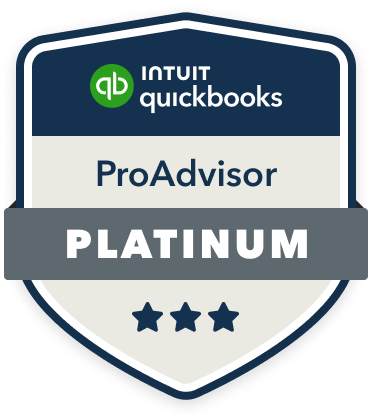Blog
Many business owners find themselves juggling multiple tasks at the end of the year as they try to close out their financials. Asking the right end-of-year (EOY) questions can reduce stress, help clean up their books, and even uncover tax savings. Below are ten questions that will help business owners finish out the year strong.
1. Have I Recorded All Credit Card Purchases?
Ensuring that all credit card transactions are captured guarantees that expenses are accounted for, avoiding missed deductions. A thorough review can help you claim every eligible expense and accurately assess financial standings.
2. Did I Dispose of Any Assets?
Reviewing asset disposals or sales is crucial for understanding tax implications. Write-offs or income from the sales can impact your books significantly, and acknowledging these changes helps avoid unexpected tax burdens.
3. Can I Collect My Open Receivables?
Uncollectible receivables can be written off, helping to clean up the books and avoid paying taxes on revenue you won’t receive. Pursue outstanding accounts and adjust your records accordingly.
4. Are My Bank Accounts Current?
Reconciling bank accounts prevents missing deductions and ensures accurate financial records. Keeping these reconciled helps maintain financial accuracy and provides a clear picture of business liquidity.
5. Should I Make Any Year-End Purchases?
Strategic year-end purchases can reduce taxable income, especially for businesses expecting a profitable year. Consider how investments in equipment or supplies might benefit your business and tax situation.
6. Do I Have Any Old or Obsolete Inventory?
Writing off old or obsolete inventory can free up storage space and eliminate unnecessary insurance costs. This proactive approach helps in maintaining a streamlined and cost-effective inventory system.
7. Have I Included All Payroll Benefits for the Year?
Reviewing payroll benefits like bonuses and retirement contributions aids in avoiding later complications with tax filings. Ensuring all benefits are recorded also clarifies employee compensation and liabilities.
8. Am I Missing Any Debt?
Verify that any debt or financed purchases are properly recorded, including deductible interest payments. Accurate recording of debts ensures all financial obligations are clear and informs financial planning.
9. Have I Included All Unpaid Bills?
Unpaid bills, if not recorded in accounts payable before year-end, may result in missed deductions. Thoroughly checking your unpaid obligations helps in accurate liability reporting.
10. Do I Have Any Errors in My General Ledger (GL) Accounts?
Spotting errors in the general ledger is vital to avoid missed deductions or unrecorded transactions. Regularly reviewing your GL ensures accounting accuracy and financial health awareness.
Conducting a thorough year-end review is an essential step for any business owner. These questions will help you prepare proactively for tax season, empower you with better financial insights, and ready your business for the upcoming year. Consider contacting a professional accounting firm for further guidance if needed, to close out your year with confidence.
Contact Details
108 Kay Avenue, Trussville, Alabama 35173, United States
Visit Our Location


Quick Links
All Rights Reserved | Trussville Tax and Accounting | Privacy Policy | Fulfillment Policy
